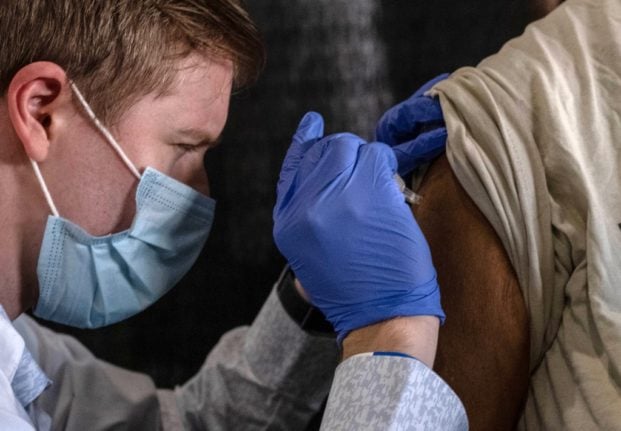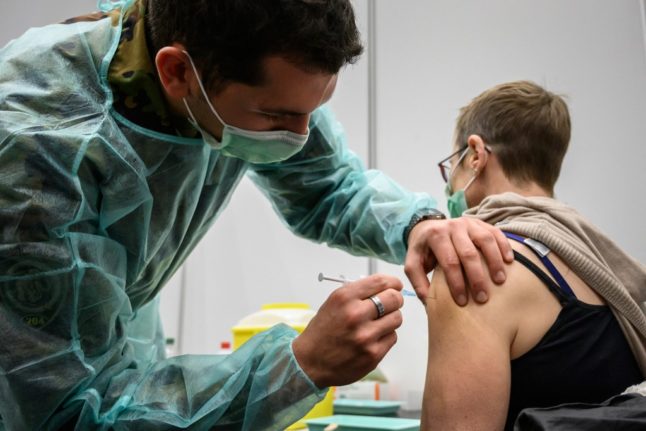The government’s Covid-19 vaccination strategy, which was unveiled during a press conference on Tuesday, involves the distribution of the approximately 13 million doses from three manufacturers: Moderna (4.5 million doses), AstraZeneca (5.3 million) and Pfizer (3 million ).
That is enough to vaccinate 6 million people out of Switzerland’s total population of 8.5 million, as the vaccine has to be given in two doses.
Launching a vaccination programme “is extremely complicated logistically”, Swiss Health Minister Alain Berset said.
This is due to the infrastructure that must be set up to store, distribute, and administer the vaccines.
Deliveries will be done in stages, subject to their final approval by Swissmedic, the supervisory authority for therapeutic products.
The next step, the storage of the vaccine, requires, quite literally, military precision and operations worthy of a spy novel: the army will keep the vaccines in secure, top-secret places.
“In recent months, we have prepared infrastructures with ultra-cold warehouses,” Daniel Aeschbach, head of the military pharmacy said at the press conference.
The army will also transport the doses to the cantons.
“Once the vaccines are delivered, storage and vaccination will be the responsibility of cantonal authorities,” Aeschbach said.
If necessary, the military will also provide ice to safely store the doses, as most locations don’t have specialised freezers needed to keep the highly perishable vaccines at extremely low temperatures.
The Pfizer vaccine, for instance, has to be kept at -80 degrees Celsius.
And Moderna's vaccine must be administered under special conditions.
“Each vial contains ten doses. The strategy is to minimise loss associated with repartitioning each vial”, Giuseppe Pantaleo, head of the Department of Laboratory Medicine and Pathology at Vaud’s University Hospital (CHUV), told RTS public broadcaster.
This means having ten people available within three hours to use all the doses.
“The challenge is not mass vaccination, but to immunise such a large number of people in an extremely limited time”, Pantaleo said.
READ MORE: Covid-19 vaccine may be ready in Switzerland sooner than predicted
How are cantonal health authorities preparing to handle the vaccination process?
Each canton must set up special vaccination units.
For instance, Basel cantonal doctor Thomas Steffen said Basel-City will initially vaccinate in large premises, such as the city’s massive exhibition centre, “an ideal venue” due to its size.
Steffen estimated that “at least 40,000 people will have to be vaccinated in Basel-City. The risk group alone is that big”.
Vaud officials estimate that 4,000 injections would be given each day for seven months.
This scale “is unheard of”, said Rebecca Ruiz, who heads Vaud’s Department of Health and Social Action.
“There will first be a vaccination in centralised spaces. But when storing the vaccine will become easier, we will be able to carry out mass vaccinations in a decentralised way, as we do today with the flu”, she added.
Other cantons have not yet released vaccination plans for their territories.
Main objectives
Also during the press conference, Virginie Masserey, head of the infection control section of the Federal Office of Public Health (FOPH) said that Switzerland’s vaccination strategy revolves around three objectives.
The first is to lower the number of severe cases, the second to maintain the capacity of the health system, and the third to reduce the economic consequences of the disease.
Initially at least, FOPH does not aim at group immunity or elimination of the virus because “we don’t know if it is possible”, Masserey said.



 Please whitelist us to continue reading.
Please whitelist us to continue reading.
Member comments